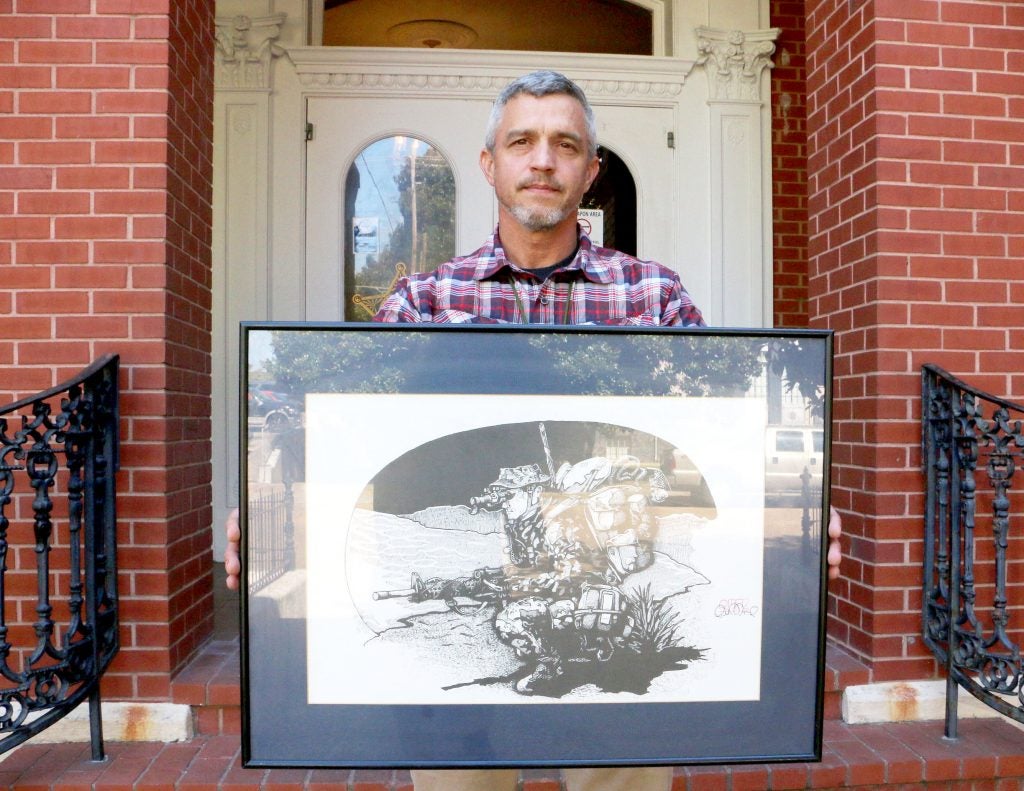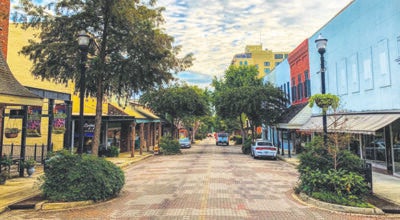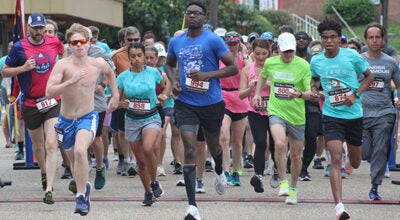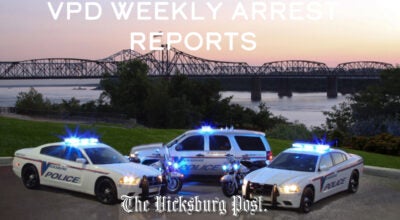Bailess fought Iraqis, burning oil
Published 10:23 am Tuesday, November 8, 2016

- SEMPER FI: Jason Bailess, a former Marine who served in the Persian Gulf War, said service in the Marine Corps taught him so much about life.
By Jaz Brisack
The Vicksburg Post
Jason Bailess will never forget the endless swarms of flies and scorpions lurking in the Saudi Arabian desert, or the rocket-propelled grenade that flashed across the hood of his Light Armored Vehicle.
But he never doubted that he was where he was supposed to be.
Born on Lackland Air Force Base in San Antonio to a military family, Bailess left Vicksburg for the Marine Corps, hoping for adventure and experience.
“Is there any other branch of service?” he said with a grin.
After boot camp and infantry school, he embarked on a year-long Asian tour, with stints in Japan, Korea, and the Philippines, where he helped secure the Philippines’ Subic Bay during the 1989 coup attempt against President Corazon Aquino.
Returning stateside, Bailess received just 30 days’ leave before deploying to the kingdom of Saudi Arabia during Operation Desert Storm. He said that many of the troops wanted to shake off the hangover from Vietnam, but their eagerness to fight mingled with apprehension about the realities of conflict.
In Saudi Arabia, Bailess drove a 14-ton, eight-wheeled LAV carrying four scouts, a gunner, and the operations officer of the 1st Light Armored Reconnaissance Battalion. Stationed on the border with Kuwait, the unit was charged with keeping the Iraqis out of the kingdom. When he came under fire for the first time during the Battle of Khafji, Bailess went into what he called “doing-my-job mode.”
“We had trained to what we were supposed to do and how we were supposed to confront [danger], and that’s what I did,” he said. “I don’t mean to sound braggadocious, but I was never scared over there. There wasn’t time to be.”
There was, however, enough time to make moonshine. Since the strict Islamic nation of Saudi Arabia forbade alcohol, Bailess’ favorite care package came from his grandmother and contained enough sweetened grape Kool-Aid and yeast to make five gallons of homemade wine for New Year’s Day.
After the scorched-earth Iraqi retreat that devastated Kuwaiti oilfields, Bailess’ battalion was one of the very first U.S. units sent into the tiny Persian Gulf country, where they prepared the local airport for helicopter landings.
“I remember the oil fires – it was ten o’clock in the morning, but it was pitch black from all the oil smoke,” Bailess said. “Once we got into Kuwait, outside of the smoke, you had black dots all over your skin and your vehicle.”
Bailess returned from the Middle East with a persistent cough that still nags him. A lingering cough can be one symptom of the Gulf Coast Syndrome affecting many Desert Storm veterans. But he thinks it’s due to inhaling fumes from all that burning petroleum.
Although contact with local civilians was limited, Bailess recalls the gratitude of the liberated Kuwaitis after the ground war was over and the Americans were pulling out. He said they were cheering and clapping and “giving us water, food, throwing flowers up on our vehicles as we drove by.”
In Bailess’ view, aspects of military policy at the time may have been misguided. The United States should have removed Saddam Hussein from power right then, rather than waiting until President George W. Bush’s post-9/11 invasion.
“That probably would have alleviated future conflicts,” he said, “but I fully supported [the war] at the time because I thought it needed to be done.”
Bailess believes that as the world’s largest superpower, the U.S. has an obligation to help other countries, but also believes “we have problems in America that need to be dealt with,” as well.
Back in the United States, Bailess was among the first Marines to attend Army Ranger School at Fort Benning in Georgia. He spent the final two years of his service at Fort Pendleton, in California, developing and teaching a pre-Ranger School course for Marines.
Bailess, who mustered out of the service as a sergeant, said the Marine Corps “taught me how to treat people.” He also credits the tactical skills he learned, especially the ability to assess and react to dangerous situations, for helping him in his current occupation.
When he isn’t competing in triathlons, Bailess works as an investigator at the Warren County Sheriff’s Office.
And, finally, his military service put things in perspective: those flies, which were brought into camp by roving herds of camels, “were the biggest of my annoyances but the least of my worries.”





